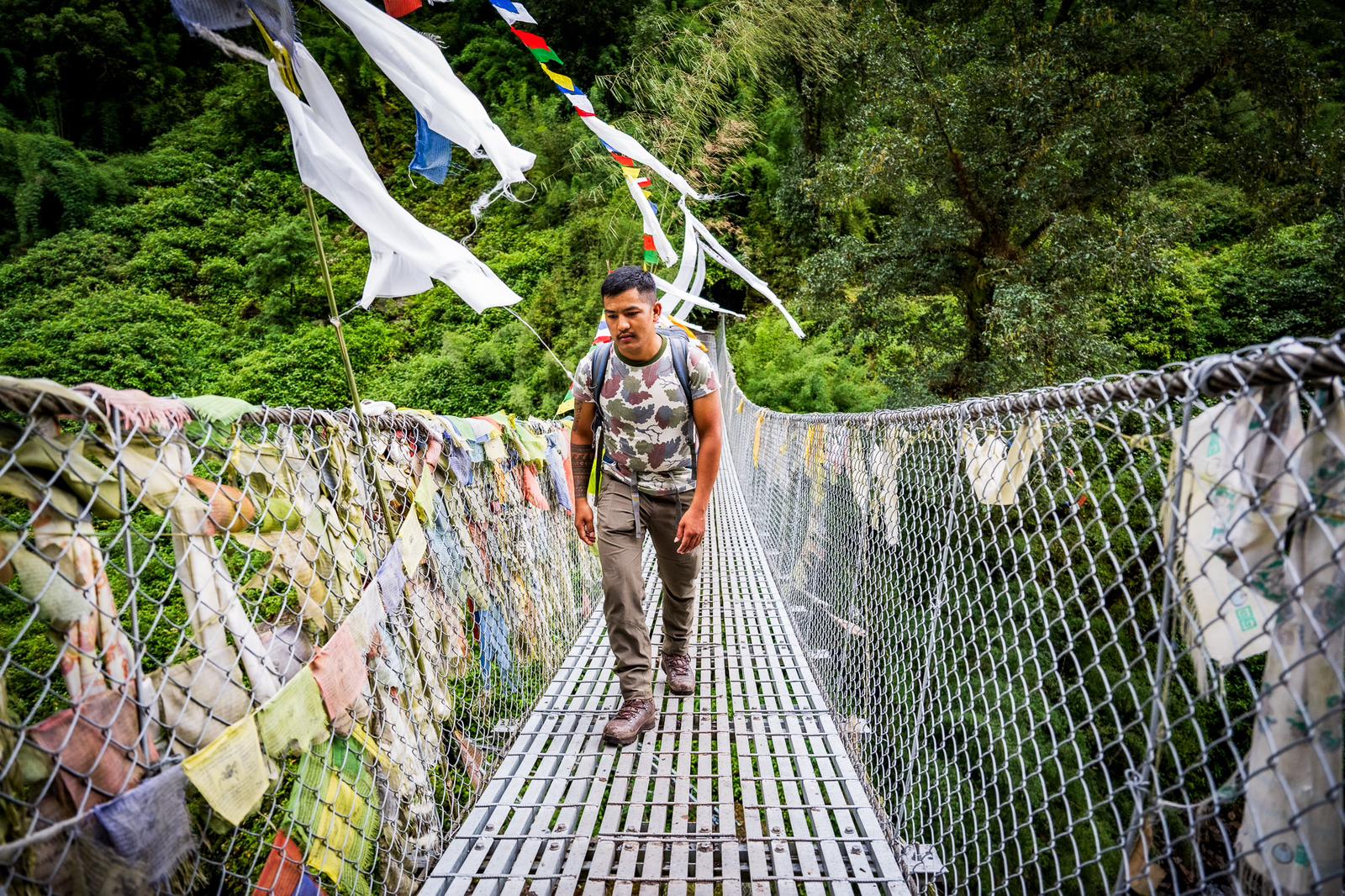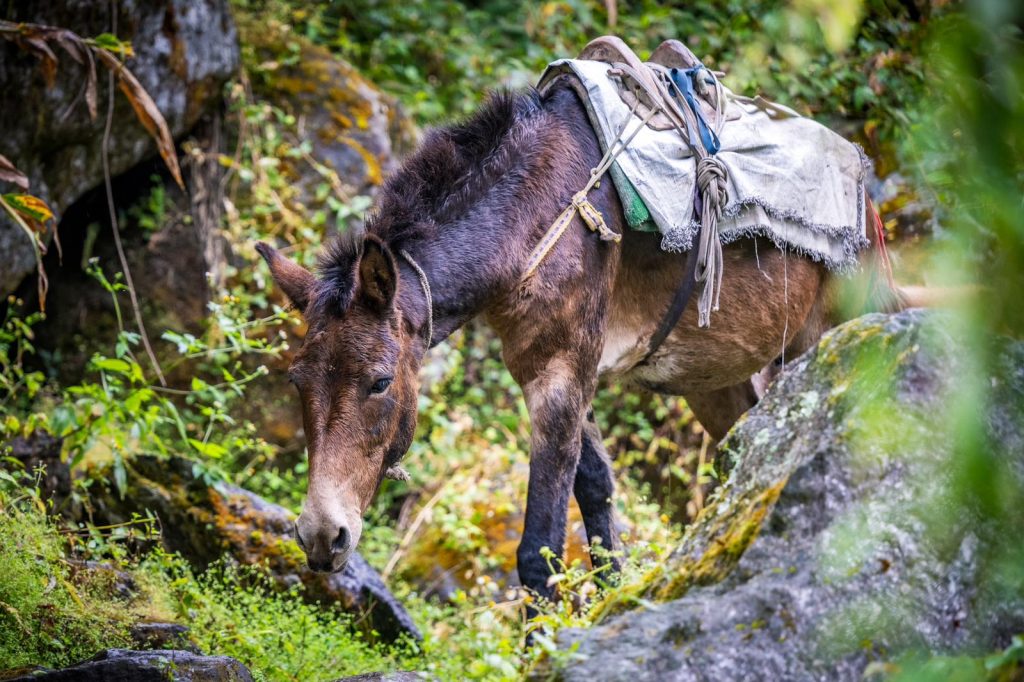

Cultural nuances, logistical intricacies, and the unpredictability of the creative process present hurdles that demand resilience and adaptability. Yet, within the challenges faced by filmmaker during the filmmaking process lie the rewards of unrivaled creative control, potential cost saving, and the freedom to crave an independent path. The granularity of mesmerizing shots, the intricacies of cultural integration, and the logistical challenges all contribute to a narrative that unfolds with its own unique rhythm.
The allure of Nepal for filmmakers is multifaceted, drawing creative souls seeking to capture its diverse landscape and immerse themselves in the tapestry of its traditions. The first impression to meet the reality is the local atmosphere this encounters with the community and its intricacies of obtaining permits. Nepal Film Production is an agency that will provide you with all kinds of facilities during your filmmaking process. From fixers to logistics everything under one agency.
A critical evaluation of the role of fixer in the filmmaking landscape, the pros and cons of independent choice, and advice for follow-up filmmakers considering a similar path. Therefore, in this blog, we can find a delicate dance between expectation and reality where resilience and adaptability become essential companies in the filmmaking arsenal.
It is very important to understand the vision of filmmakers. This helps fixer to find location according to the expectations of filmmakers. From scouting locations against the stunning backdrop of Nepal to the bridge between vision of filmmakers and reality of the place.
The tower peaks, lush valleys, and vibrant streets are the raw materials for visual storytelling. Every frame, every moment, envisioned the backdrop of Nepal’s scenario. Visualizing scenes against Nepal’s stunning backdrop is an art from surroundings and narrative. The initial expectation is a journey that transcends the boundaries of conventional filmmaking, immersing audiences in an experience that echoes the spirit of this extraordinary land Nepal.
Every location is a unique thread in a vast tapestry. It is the key to success that lies in meticulous research and comprehensive pre-production planning. It is important to recognize the complexity, fixer commitment for careful unraveling, and understanding the threads that weave together Nepal’s cinematic potential. The research not only honed creativity vision but also lays the groundwork of authentic and resonate storytelling experiences. Therefore, the research and perception insights is the foundation of the cinematic venture of Nepal.
Some of the challenges that filmmakers can face are language barriers, cultural sensitivities, transportation, navigating unforeseen hurdles with resilience, and adapting. These challenges are an integral chapter in the making of a film narrative. The fixer helps in resolving issues during the filmmaking process. The challenges occurring during filmmaking are anticipated to be inherent to film in Nepal’s diverse terrain. Therefore, the fixer needs to strike a balance between initial optimism and a pragmatic approach. So that the filmmakers can get what they are expecting.
This segment serves as a reflective pause, a moment to dissect the intricacies of our journey and unravel the tapestry woven from the raw authenticity of the on-ground experience.
In the ethereal realm of filmmaking, where imagination takes flight, initial plans are the guiding stars that illuminate the path through the intricacies of Nepal’s cinematic landscapes. The candid analysis serves as a reflective mirror, capturing the moments where our aspirations brush against the contours of reality. The narrative of reality unfolds in unexpected ways.
This section is an excavation of knowledge, delving into both the triumphs and tribulations that shape the path of filmmakers. Any lesson is a valuable lesson for future filmmakers, providing insights into the elements that can contribute to a smoother and more rewarding filmmaking experience. As an honest exploration of the pitbull encounter, acknowledging that learning often emerges from navigating the unexpected.
As we navigate the impact on the final cinematic output, the narrative reveals how the essence of the journey seeps into the frames. The final output becomes a living testament to the profound impact of the journey on the cinematic canvas. The journey’s ability to adapt to the unexpected is celebrated as a key contributor to the authenticity embedded in the frames.
This section meticulously dissects the pros and cons, presenting a comprehensive perspective to empower filmmaking. Choosing to work without a fixer grants filmmakers an unparalleled level of creative control. Likewise, all use of creative control comes with the responsibility of bearing the full weight of decision-making. Some of the pros and cons of choosing to work without a fixer are mentioned below:
It allows for a more personal and unfiltered expression of the filmmaker’s artistic storytelling experience. The absence of a fixer enables filmmakers to experiment, innovate, and fully immerse themselves in the creative process. This results in a film that bears the undiluted imprint of their artistic identity.
The funds that would have been allocated to a fixer can be redirected towards enhancing production quality and securing better equipment. The cost-saving advantage is particularly significant for independent filmmakers or those operating within a constrained budget. The funds can also be invested in other critical aspects of the filmmaking process.
Filmmakers can make spontaneous creative decisions on the spot without the need for extensive consultation. Similarly, they are able to respond to unforeseen opportunities or challenges, optimizing the use of time and resources for more dynamic and authentic storytelling. The exploration of the filmmaker contributes to the creation of a film with a distinctive visual and atmosphere.
Collaborating with a fixer significantly streamlines the process of obtaining a film for production in a foreign country. Working with a fixer transforms the often complex and bureaucratic permit acquisition process into a more efficient and collaborative venture. It is a time-saving and streamlined experience to acquire permits with the help of a fixer.
The risk of misunderstanding increases, potentially leading to unintentional misrepresentations or inaccuracies in the portrayal of cultural elements. Without the guidance of a fixer who possesses cultural exploration expertise, filmmakers may inadvertently misinterpret the nuances of local customs. It is difficult to understand the culture of a certain place without a fixer.
The absence of a fixer may make navigating transportation logistics a daunting task. Filmmakers may face challenges like arranging reliable filming locations and understanding transportation routes. Identifying lodgings that align with the production’s needs, budget constraints, and logistic convenience requires research and an understanding of the local hospitality landscape.
Filmmakers can face communication challenges, navigating customs, interviewing and storytelling people, interacting with authorities, and building relationships. Filmmakers should hire interpreters who can bridge the linguistic gaps. The absence of a fixer to serve as a cultural liaison may hinder filmmakers from establishing the trust and rapport necessary for authentic storytelling.
Securing the necessary permits for a film production in a foreign country can be a hectic process, and when opting to work without a fixer, filmmakers face many additional challenges. They embrace the complexities of the bureaucratic process, address language barriers, and demonstrate a deep understanding of local regulations to ensure a successful permit approval with fixer.

The journey of a lone filmmaker in Nepal is a tapestry woven with the threads of expectation and reality. As a lone filmmaker navigates Nepal’s cinematic terrain without a fixer, the challenges and rewards are intricately woven into the fabric of experience. Summing up, this journey embraces the disparities, recognizing that the unexpected is an integral part of the filmmaker’s odyssey.
Local fixer is like a helpful friend in a new place. They know the ropes, get things done, and smooth out the bumps – think translator, permit wizard, and logistics pro all in one.
Fixers are local helpers who smooth the way in tricky situations. They’re translators, problem solvers, and access providers – think personal wizards for navigating unfamiliar places.